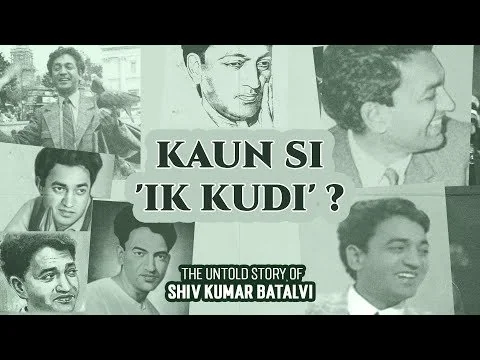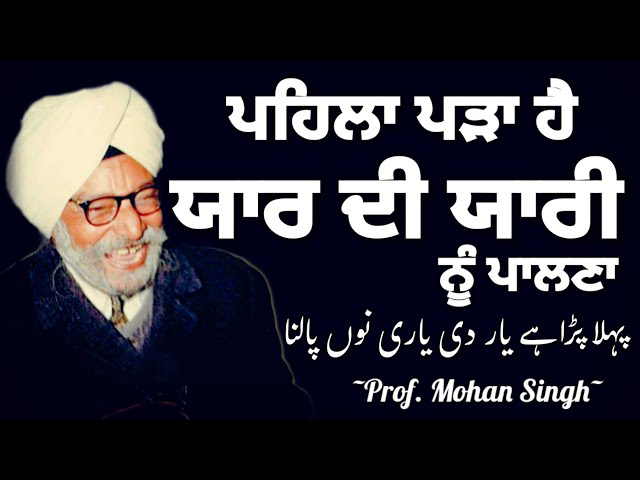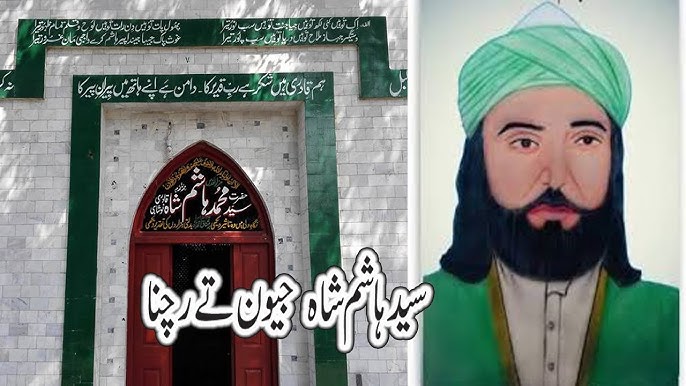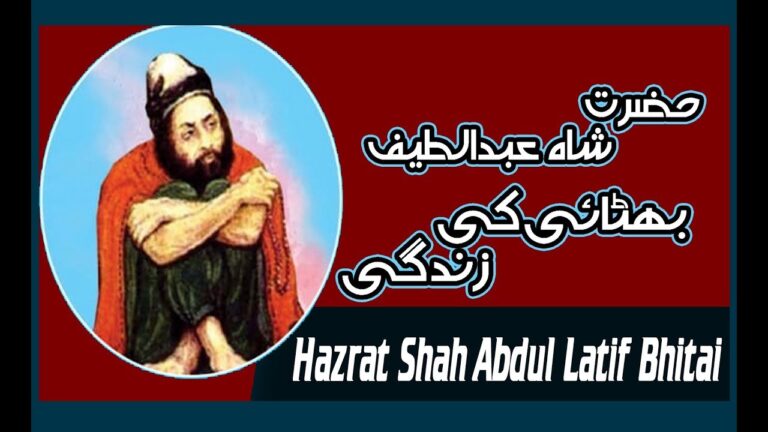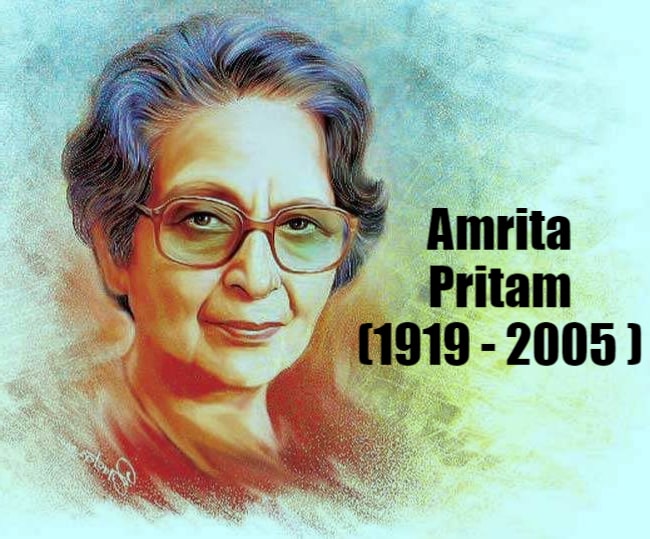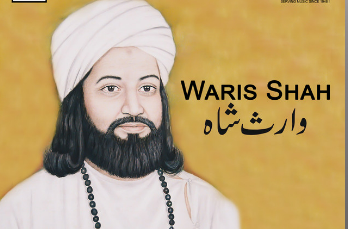Shiv Kumar Batalvi The Poet of Heartbreak and Romanticism
Shiv Kumar Batalvi: The Poet of Heartbreak and Romanticism
Shiv Kumar Batalvi (1926–1973) is revered as one of the most significant poets in Punjabi literature, known for his unique voice that blends deep emotionality with a profound understanding of human relationships. His poetry resonates with themes of love, loss, and the ephemeral nature of life, marked by a romanticism that captures the essence of Punjabi culture and sentiment. A poet of the people, Batalvi’s verses reflect the socio-political landscape of his time while delving into the personal struggles and emotional intricacies of life.
Early Life and Background
Born on July 23, 1926, in the village of Mehar (now in the district of Gurdaspur, Punjab, India), Shiv Kumar Batalvi grew up in a region that was steeped in rich cultural traditions. His father, Sardar Karam Singh, was a teacher, which likely influenced Batalvi’s early exposure to literature. He began writing poetry at a young age, drawn to the lyrical quality of the Punjabi language and its folk traditions. His upbringing in a rural environment infused his work with elements of nature, folk tales, and the vibrant life of Punjabi villages.
Batalvi’s formal education was limited due to the tumultuous political climate and the onset of the Partition in 1947. He experienced the effects of this historical event firsthand, and the upheaval influenced his later works. The emotional and cultural dislocation experienced during this period would resonate throughout his poetry, giving it a depth that appealed to many.
Themes and Style
Shiv Kumar Batalvi’s poetry is characterized by its poignant exploration of love and heartbreak. His work is notable for the following themes:
1. Romanticism and Love
Batalvi’s poetry often centers on the theme of love—both its beauty and its pain. He captures the euphoric highs and devastating lows of romantic relationships, portraying love as a force that can elevate one to ecstatic heights while also leading to profound sorrow. His verses are imbued with a sense of longing and a search for connection that speaks to the universal human experience.
One of his most famous works, “Ane Kalli Aag Dhaal Sukh,” exemplifies this theme. The poem reflects on the passionate yet fleeting nature of love, encapsulating the joys and heartaches of romantic encounters.
2. Nature and Rural Life
Batalvi’s connection to nature is evident in his poetry. He often uses natural imagery to reflect human emotions, drawing parallels between the beauty of the natural world and the complexities of human relationships. His descriptions of the Punjabi landscape—fields, rivers, and seasonal changes—serve as a backdrop for his exploration of love and loss.
3. Melancholy and Existentialism
While Batalvi’s poetry often celebrates love, it also grapples with themes of melancholy and existential reflection. His verses convey a sense of impermanence and the inevitability of loss, reflecting on the transient nature of life and relationships. This duality of joy and sorrow is a hallmark of his style, creating a rich emotional tapestry that resonates with readers.
4. Cultural Identity
Batalvi’s work is deeply rooted in Punjabi culture. He drew inspiration from folk traditions, proverbs, and local idioms, embedding the cultural essence of Punjab into his poetry. This connection to his heritage not only grounded his work in a specific cultural context but also made it accessible and relatable to a wide audience.
Major Works
Shiv Kumar Batalvi’s literary contributions encompass various forms, including poetry, plays, and essays. Some of his most notable works include:
1. “Sunehri Mela” (The Golden Fair)
This collection of poems highlights the beauty of love and longing. It reflects Batalvi’s mastery of the Punjabi language and his ability to weave emotional depth into his verses. The imagery and lyrical quality of the poems resonate with readers, capturing the essence of romantic yearning.
2. “Loona”
One of his most celebrated plays, Loona is based on the folk tale of a beautiful woman named Loona who is caught between love and societal constraints. The play showcases Batalvi’s ability to blend poetry with drama, exploring themes of desire, sacrifice, and cultural expectations. It remains a significant work in Punjabi theatre and continues to be performed and adapted.
3. “Batalvi Da Bagh” (The Garden of Batalvi)
This collection contains some of his most poignant poems, delving into the complexities of love, loss, and identity. The emotional intensity of the poems captures the struggles and triumphs of the human spirit, making it a beloved work among his readers.
4. “Chand Diyan Raatan” (Nights of the Moon)
This anthology features poems that reflect on love and longing during the moonlit nights of Punjab. The imagery of the moon serves as a powerful metaphor for the beauty and transience of love, creating a captivating emotional landscape for readers.
Literary Style
Batalvi’s literary style is marked by its simplicity and lyrical quality. His use of colloquial language and idiomatic expressions makes his poetry accessible to a broad audience, while still retaining a depth of emotion and meaning. His mastery of rhythm and meter enhances the musicality of his verses, allowing them to flow effortlessly.
One of the distinctive features of Batalvi’s poetry is his ability to blend traditional Punjabi folk forms with modern poetic sensibilities. He drew from folk traditions, incorporating their motifs and themes into his work while infusing them with a contemporary voice. This fusion of old and new not only enriched his poetry but also helped preserve the cultural heritage of Punjab.
Awards and Recognition
Shiv Kumar Batalvi’s contributions to Punjabi literature earned him numerous accolades during his lifetime. In 1967, he was awarded the prestigious Sahitya Akademi Award for his play Loona, acknowledging his significant impact on Indian literature. He was also honored with the Punjab Government’s Award for his contributions to Punjabi literature, solidifying his status as a leading figure in the literary world.
Despite his relatively short life—he passed away at the age of 47 due to health complications—Batalvi’s legacy continues to thrive. His poetry remains a vital part of Punjabi literature, inspiring new generations of poets and writers to explore themes of love, loss, and identity.
Legacy and Impact
Shiv Kumar Batalvi’s legacy endures through his profound impact on Punjabi literature and culture. His exploration of love and loss, coupled with his mastery of the Punjabi language, has left an indelible mark on the literary landscape. Batalvi’s poetry continues to resonate with readers, transcending cultural and generational boundaries.
His work has inspired countless artists, musicians, and writers, contributing to the vibrant cultural tapestry of Punjab. Many contemporary Punjabi singers and lyricists draw inspiration from Batalvi’s verses, adapting them into songs that celebrate the emotions he so poignantly captured in his poetry.
Moreover, Batalvi’s exploration of themes such as identity, cultural heritage, and the human experience aligns him with the broader global literary canon. His ability to articulate the complexities of love and loss situates his work within a universal framework, appealing to readers from diverse backgrounds.
Conclusion
Shiv Kumar Batalvi stands as a towering figure in Punjabi literature, his poetry serving as a powerful testament to the beauty and fragility of human emotions. His exploration of love, loss, and cultural identity resonates with readers, offering a glimpse into the complexities of the human experience.
Through his evocative verses and lyrical style, Batalvi captured the essence of Punjabi culture while transcending the confines of time and geography. His legacy endures not only in the realm of literature but also in the hearts of those who continue to find solace and inspiration in his words. As a poet of heartbreak and romanticism, Shiv Kumar Batalvi remains an eternal voice in the world of Punjabi literature.
